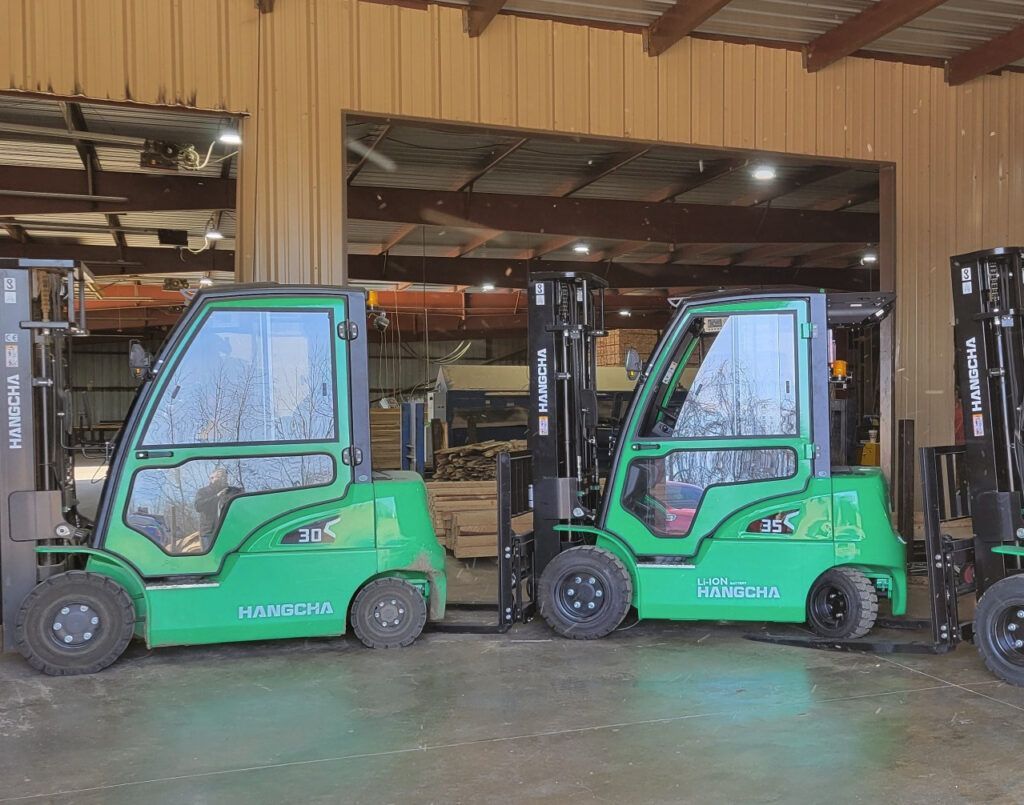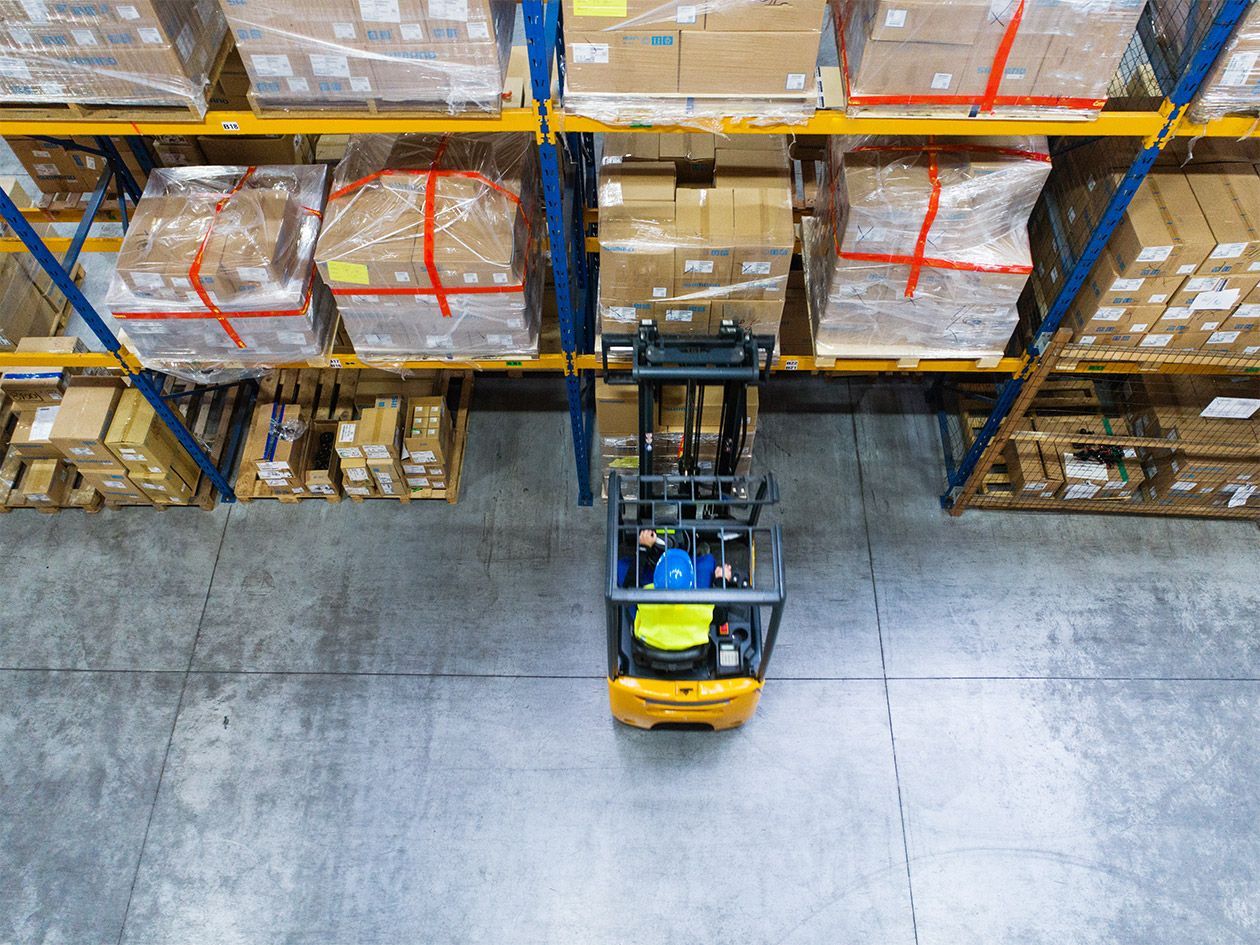Materials Handling Industry Outlook for 2024
In the fast-paced material handling industry (MHI), staying ahead of the curve is crucial for businesses looking to maintain a competitive edge. As we approach 2024, it’s essential to closely examine the industry’s outlook and identify critical trends that will headline the upcoming year and help shape the direction of the field.
Current Trends & Challenges in the Materials Handling Industry
The materials handling industry constantly evolves, driven by technological advancements, changing customer demands, and emerging market trends. One of the critical current trends in the industry is the increasing adoption of automation and digitalization. Companies leverage cutting-edge technologies such as robotics, artificial intelligence, and the Internet of Things (IoT) to optimize efficiency and streamline operations.
However, along with the benefits come challenges. One of the significant challenges facing the materials handling industry is the need for more skilled labor. As automation becomes increasingly prevalent, there is a growing need for workers with technical skills to operate and maintain this advanced machinery. Companies are investing in training programs and partnering with educational institutions to bridge this skills gap.
Another challenge is the rising cost of energy. Materials handling operations require substantial energy consumption, whether powering machinery or maintaining temperature-controlled environments. With the increasing focus on sustainability and environmental responsibility, companies are exploring renewable energy sources and adopting energy-efficient practices to reduce their carbon footprint and lower operational costs.
What Are The Key Drivers Shaping the MHI Industry?
Several vital drivers are shaping the materials handling industry’s outlook for 2024. One of the primary drivers is the growing demand for e-commerce and online shopping. As more consumers turn to online platforms for purchasing, there is a higher demand for efficient logistics and materials handling solutions. Companies are investing in technologies that enable faster order fulfillment, improved inventory management, and seamless last-mile delivery.
Another industry driver is greater flexibility and agility in materials handling operations. With changing customer demands and market dynamics, organizations must be able to adapt quickly to meet evolving requirements; this has led to the rise of modular and scalable materials handling solutions that can be easily customized and reconfigured to accommodate changing needs.
Safety is also a significant concern in the industry. Material handling operations can be hazardous, with risks of accidents and injuries. Companies invest in advanced safety sensors, automated guided vehicles , and ergonomic equipment to enhance workplace safety and protect employees.

Technological Advancements in MHI
Technological advancements play a significant role in shaping the materials handling industry’s outlook for 2024. Robotics is one of the most prominent advancements in the field. Warehouse robots are becoming increasingly sophisticated, capable of autonomously navigating warehouses, picking and packing items, and even collaborating with human workers. These robots can significantly improve materials handling operations’ efficiency, accuracy, and speed.
Another technological advancement is the integration of artificial intelligence and machine learning into materials handling systems. AI-powered algorithms can analyze vast amounts of data to optimize inventory management, predict demand patterns, and identify process bottlenecks, enabling companies to make data-driven decisions and improve overall operational efficiency.
Furthermore, IoT transforms materials handling by connecting machines, sensors, and devices to a centralized network. IoT devices allow real-time monitoring and remote equipment control, enabling proactive maintenance while reducing downtime. IoT also facilitates the collection of valuable data for analysis to identify areas for improvement and drive continuous optimization.
Strategies for Success in the MHI
Organizations must adapt to the changing landscape and embrace innovation to succeed in the materials handling industry. Here are some strategies to consider:
- Embrace automation: Invest in robotics and automation technologies to improve efficiency, reduce errors, and increase productivity in materials handling operations.
- Focus on training and skills development: Develop a workforce with the necessary technical skills to operate and maintain advanced materials handling equipment. Invest in training programs and partnerships with educational institutions to bridge the skills gap.
- Prioritize safety: Implement advanced safety measures and equipment to protect employees and create a safe working environment. Regularly review and update safety protocols to ensure compliance with industry standards.
- Adopt sustainable practices: Explore eco-friendly initiatives and renewable energy sources to reduce the environmental impact of materials handling operations. Implement sustainable packaging solutions and promote recycling throughout the supply chain.
- Embrace data-driven decision-making: Leverage data analytics and AI-powered algorithms to gain insights into operational performance, identify areas for improvement, and drive continuous optimization.

Work With Benco Industrial Equipment
As we look ahead to 2024, the materials handling industry is poised for significant advancements and growth. Automation, digitalization, and sustainability will continue to be critical drivers shaping the industry’s outlook.
To stay ahead in this evolving industry, companies must embrace technological advancements, prioritize safety and sustainability, and leverage data-driven decision-making.
Our Benco Industrial Equipment team offers personalized assistance and consultation to help you find the best solutions for your warehouse needs. Contact us today to explore our range of industrial equipment and services and take the first step toward elevating your warehouse to new heights.
The post Materials Handling Industry Outlook for 2024 appeared first on Benco Industrial Equipment.




